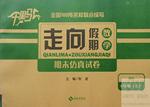
The Cost of Higher Education
Individuals (个人) should pay for their higher education.
A university education is of huge and direct benefit to the individual. Graduates earn more than non-graduates. Meanwhile, social mobility is ever more dependent on having a degree. However, only some people have it. So the individual, not the taxpayers, should pay for it. There are pressing calls on the resources (资源) of the government. Using taxpayers' money to help a small number of people to earn high incomes in the future is not one of them.
Full government funding (资助) is not very good for universities. Adam Smith worked in a Scottish university whose teachers lived off student fees. He knew and looked down upon 18th-century Oxford, where the academics lived comfortably off the income received from the government. Guaranteed salaries, Smith argued, were the enemy of hard work; and when the academics were lazy and incompetent, the students were similarly lazy.
If students have to pay for their education, they not only work harder, but also demand more from their teachers. And their teachers have to keep them satisfied. If that means taking teaching seriously, and giving less time to their own research interests, that is surely something to celebrate.
Many people believe that higher education should be free because it is good for the economy (经济). Many graduates clearly do contribute to national wealth, but so do all the businesses that invest (投资) and create jobs. If you believe that the government should pay for higher education because graduates are economically productive, you should also believe that the government should pay part of business costs. Anyone promising to create jobs should receive a gift of capital from the government to invest. Therefore, it is the individual, not the government, who should pay for their university education.
1. The underlined word "them" in Paragraph 2 refers to____________
A. taxpayers B. pressing calls
C. college graduates D. government resources
2. The author thinks that with full government funding____________
A. teachers are less satisfied
B. students are more demanding
C. students will become more competent
D. teachers will spend less time on teaching
3. The author mentions businesses in Paragraph 5 in order to ____________
A. argue against free university education
B. call on them to finance students' studies
C. encourage graduates to go into business
D. show their contribution to higher education

 千里马走向假期期末仿真试卷寒假系列答案
千里马走向假期期末仿真试卷寒假系列答案 The Cost of Higher Education
The Cost of Higher Education